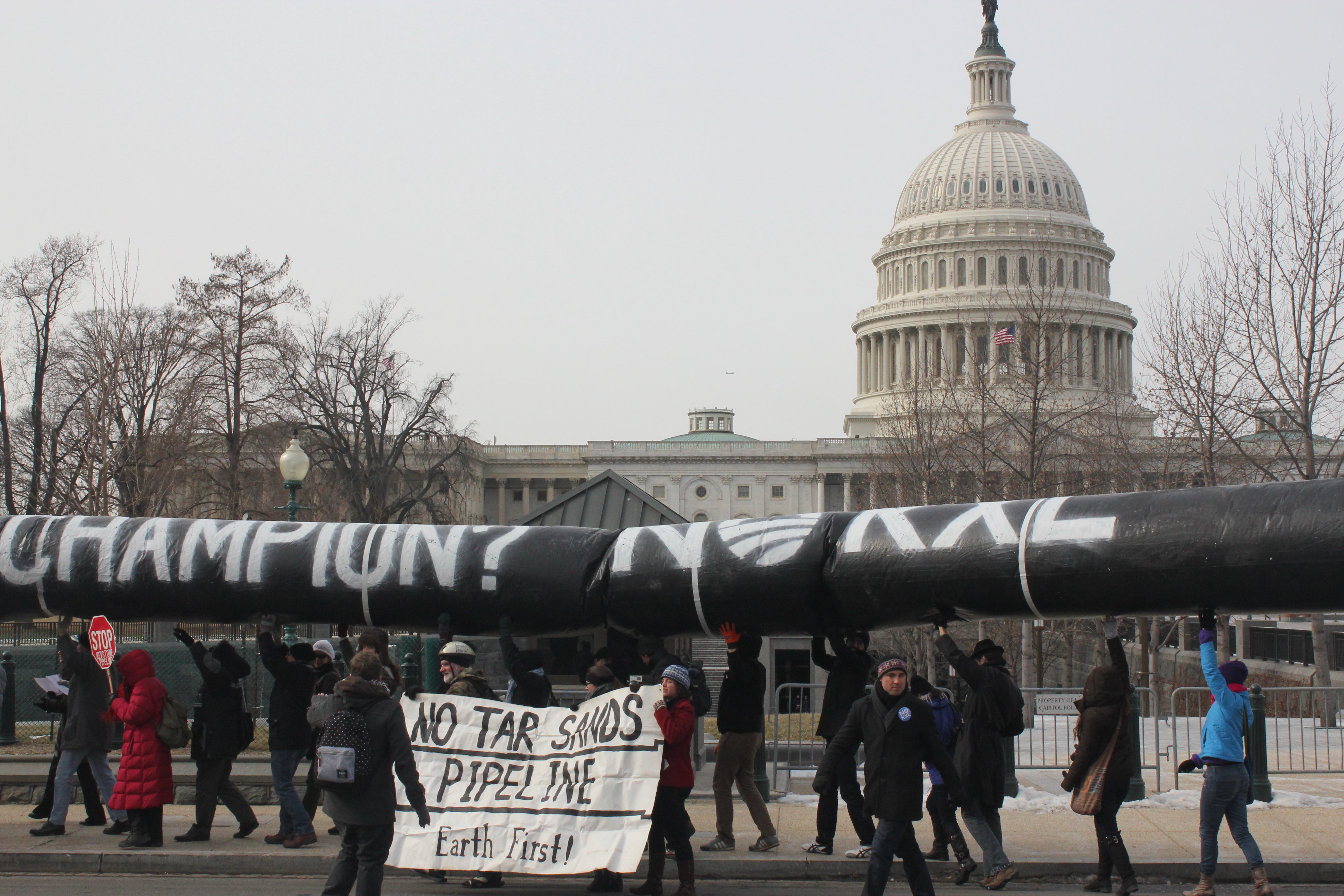- Blog
- Sustainable Economic Systems
- TransCanada sues U.S. taxpayers for $15 billion over KXL
TransCanada sues U.S. taxpayers for $15 billion over KXL

Donate Now!
Your contribution will benefit Friends of the Earth.
Stay Informed
Thanks for your interest in Friends of the Earth. You can find information about us and get in touch the following ways:
Late last week, the tar sands pipeline company TransCanada officially filed suit against the United States under the North American Free Trade Agreement investment chapter, claiming $15 billion in damages in compensation for President Obama’s decision to block construction of the Keystone XL pipeline. This follows on their threat last January when TransCanada filed a “notice of intent” to file the claim with the International Centre for Settlement of Investment Disputes at the World Bank.
As Friends of the Earth President Erich Pica has noted: “TransCanada’s Keystone XL permit was denied because construction of the pipeline was not in the United States national interest. Instead of honoring President Obama’s reasoned decision, TransCanada wants to turn to secretive trade tribunals to force American taxpayers to compensate it for a project that should never have been proposed.” This is why Friends of the Earth opposes the Trans Pacific Partnership and other trade agreements, which allow companies and investors to challenge sovereign government decisions to protect public health and the environment.
The Keystone XL pipeline would have been a massively destructive threat to the environment and the climate. It would have ramped up the exploitation of the Canadian tar sands, leading to a prodigious release of greenhouse gas emissions and a vast expansion of North American fossil fuel exports that would have further hooked the global economy on dangerous high carbon fuels. It would have slowed our transition to solar and wind energy, accelerated the destruction of Canada’s pristine boreal forests and threatened one of the one of the world’s largest aquifers — which provides drinking and irrigation water to millions of Americans.
It is not surprising that TransCanada’s suit is being brought under NAFTA’s investment chapter. NAFTA and similar deals cut by the United States trade negotiators provide authorization for private investors and corporations to circumvent legitimate courts (where they would have little basis for a successful claim) and sue the U.S. and other nation states for unlimited money damages in compensation for complying with environmental and public interest regulations. These provisions have been used in existing agreements to roll back environmental regulations around the world. And, fossil fuel companies are frequent plaintiffs.
Interestingly, one of the lead lawyers for TransCanada in the Keystone suit is James Mendenhall, a partner at Sidley Austin and a former Assistant U.S. Trade Representative and Deputy General Counsel at the Office of the U.S. Trade Representative, where he worked on investment deals among other responsibilities. This illustrates the problem of the revolving door at USTR, where bright young lawyers work on international trade and investment deals and then leave for private practice where they are richly compensated for serving as counsel for multinational corporations suing the U.S. and other countries under the investment provisions of agreements they may have helped create. Mendenhall, also, is reported to have served as counsel for Philip Morris in its ultimately unsuccessful suit seeking compensation for Australia’s plain packaging regulations for cigarettes.
It is not hard to see why the U.S. model for international investment provisions in trade deals like NAFTA and the TPP are in the economic interest of TransCanada, Chevron, Exxon-Mobile and other fossil fuel giants:
- An investment chapter on the U.S. model creates a separate “court” for foreign capital. Foreign investors can bypass domestic courts and bring suit before special international tribunals designed to encourage international investment.
- The tribunals are biased. An arbitrator serving on one of these tribunals is likely to be an international commercial lawyer who may alternately serve as “judge” one day and return as corporate counsel the next.
- Corporate and individual investors are granted property and due process rights that are more broadly defined than in U.S. constitutional law or the practice of nations, generally.
- Investors may seek awards of money damages, of unlimited size, in compensation for the cost of complying with environmental and other public interest regulations. They may even seek compensation for lost future profits.
- Damage awards can be large enough to severely stress the public budgets of both small and large countries. The fear of such ruinous judgments can force a country to settle unjust investor claims and to back away from protecting the environment and the public interest.
Many jurists and legal scholars have been dismayed by the advent of investor-state arbitration, which is intended to circumvent and, in some cases, trump domestic law and domestic courts. For example, a statement signed by a long list of eminent jurists objecting to investor-state arbitration has been transmitted to Trans Pacific Partnership trade negotiators. Sir Edmund Thomas, a former New Zealand Court of Appeal judge, sums up the issue: Investor-state dispute arbitration provisions, he says, “… have been used to override the jurisdiction of domestic legal systems [and] have failed to meet accepted perceptions of the rule of law…”
The TransCanada investment suit against the United States is an outrage: and so is the Trans Pacific Partnership trade deal and the current USTR model for international investment agreements. The revolving door at the office of the U.S. Trade Representative, also, is totally unacceptable.
